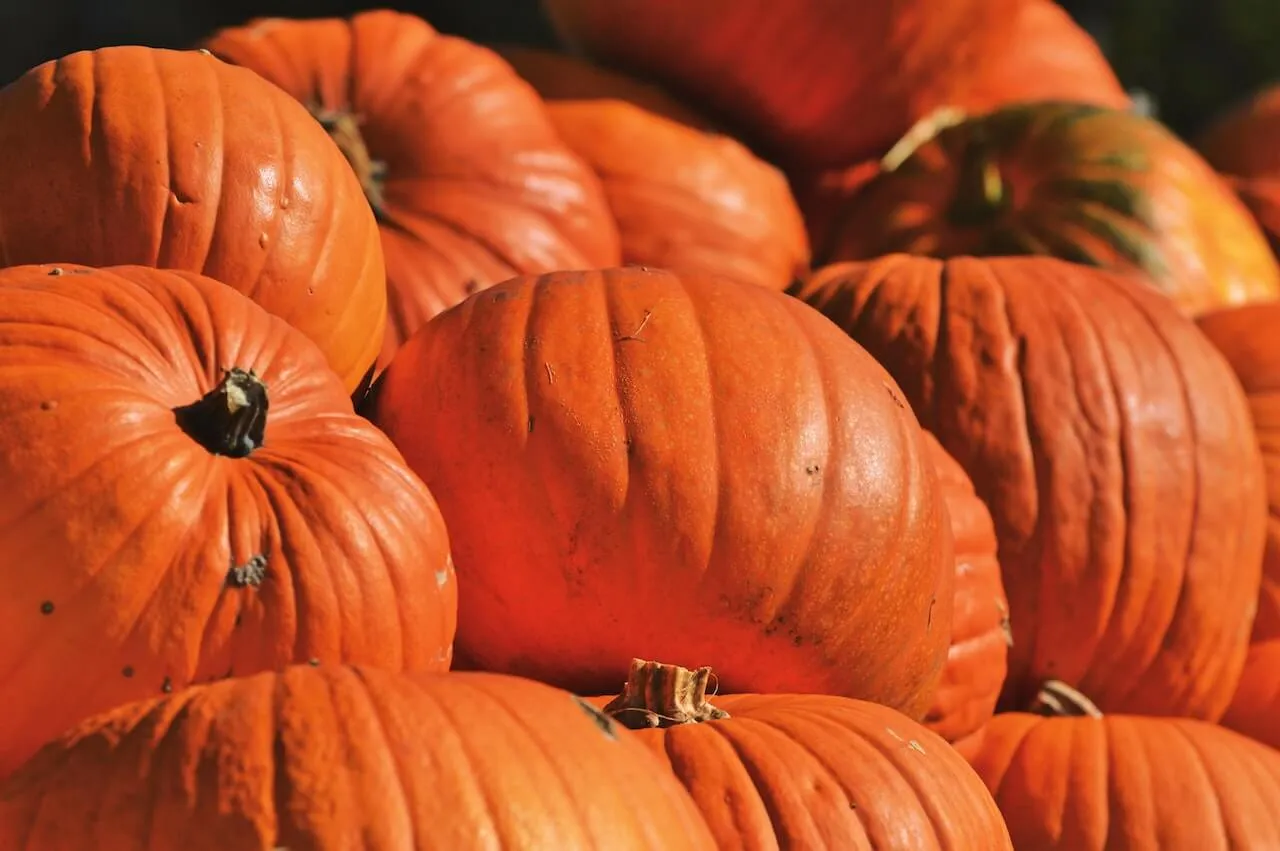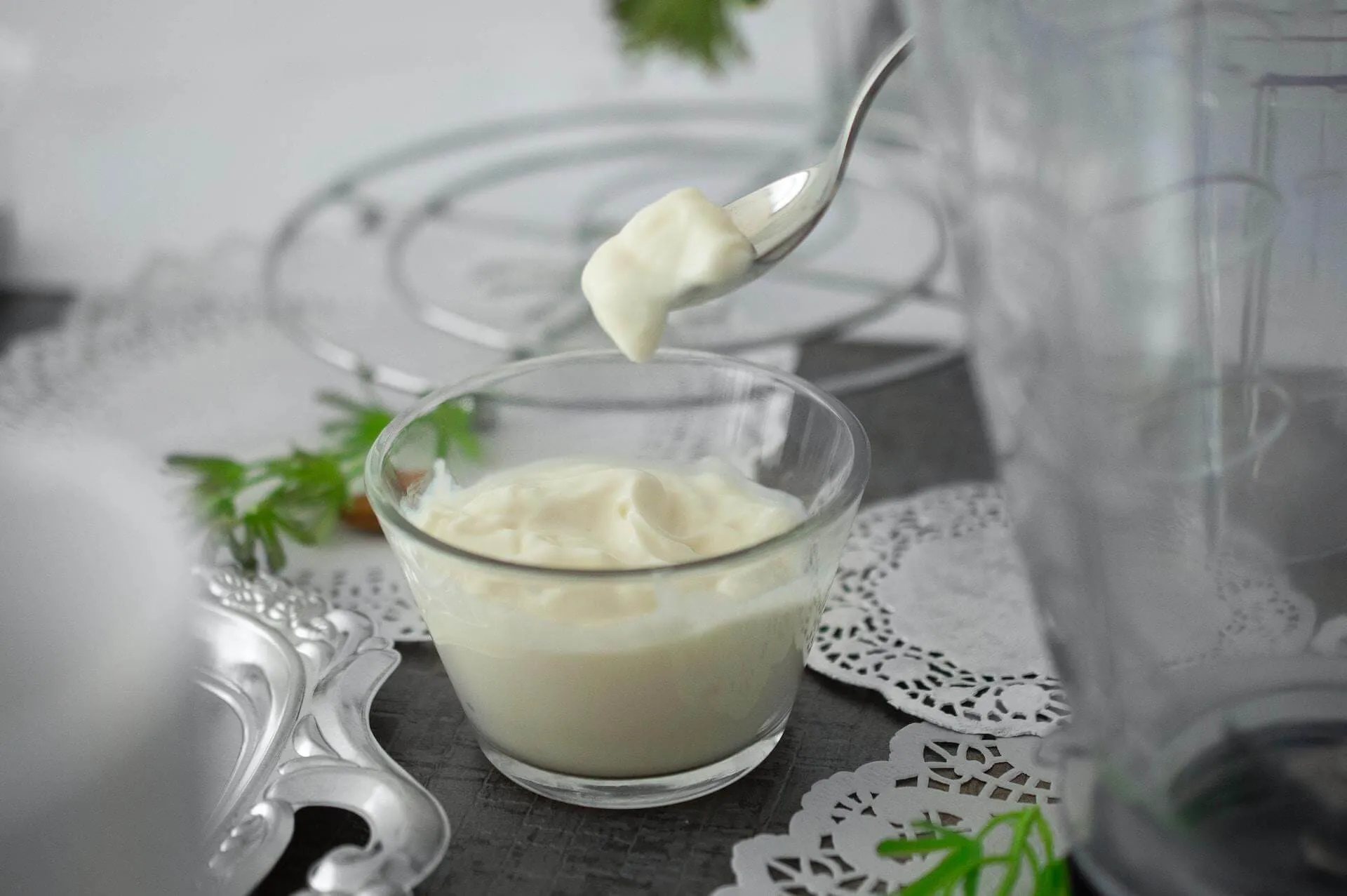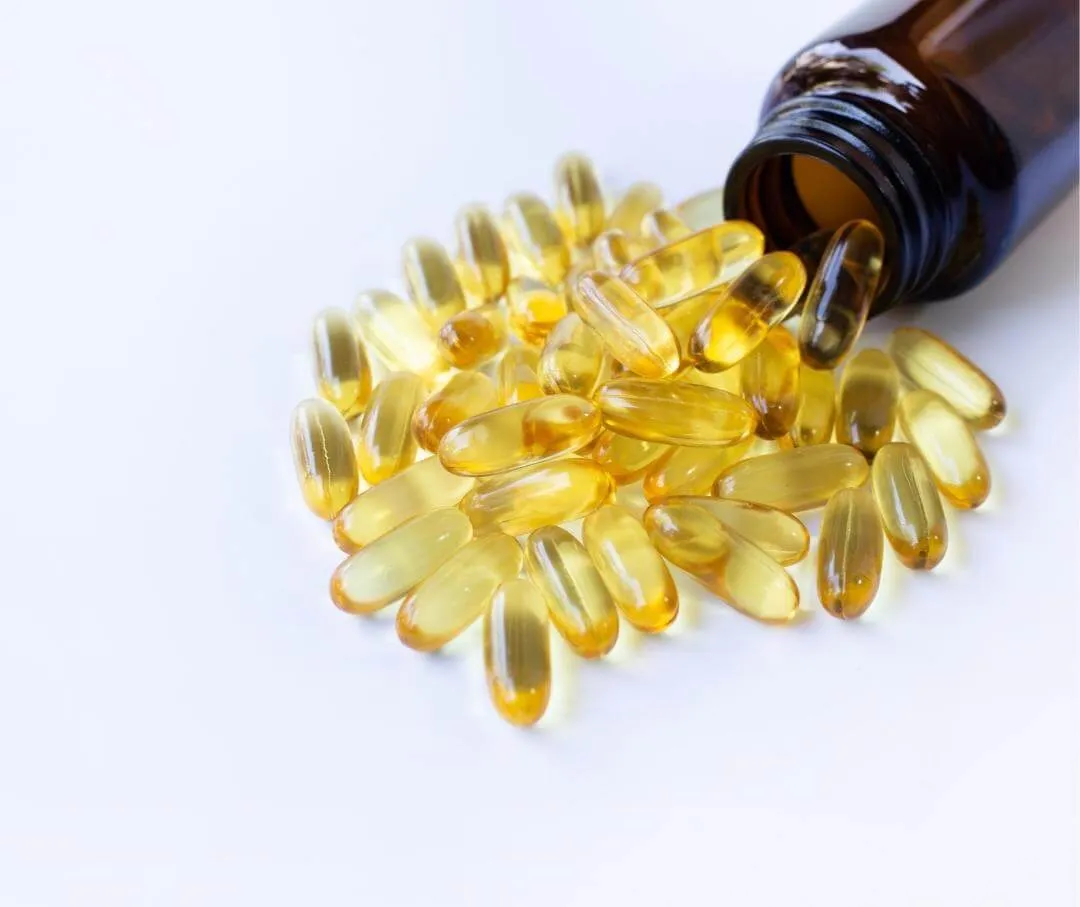You may be wondering what pumpkin seed oil is, when is it used, and for what purpose?
Pumpkin seed oil is used in cooking or salad dressings, traditional medicine, medications, and cosmetics.1,2
Pumpkin seed oil is considered a potential functional food as it comes from pumpkin seeds with many health benefits.1,2 A functional food provides health benefits beyond basic nutrition needs.
In this article, you will learn about pumpkin seed oil, its nutrition facts, health benefits, any downsides or side effects, and ways to incorporate pumpkin oil into your diet.
What is Pumpkin Seed Oil?
Pumpkin seed oil is simply oil extracted or cold-pressed from pumpkin seeds. Pumpkin seed oil is not recommended for high-heat cooking as it has a lower smoke point (when the oil breaks down and loses its nutritional qualities).2
Pumpkin seed oil is perfect for salad dressings, added towards the end of a warm dish to add flavor, or mix into cooked soups.2 The intense, warm flavor benefits many dishes or as a marinade to top vegetables or meat. Pumpkin seed oil is dark green.4
Besides cooking oil, pumpkin seed oil can be found in a supplement capsule form and has been studied for its ability to help benign prostatic hyperplasia. It is also used in beauty and cosmetic products, with research focused on preventing hair loss.2,3
{{mid-cta}}
Pumpkin Seed Oil Nutritional Facts
Pumpkin seed oil is comprised of over 90% heart-healthy, unsaturated fats (monounsaturated and polyunsaturated fats)2. You can purchase this oil at local stores or online.
A tablespoon (15 mL) of pumpkin seed oil contains the following nutrients:5
- 130 calories
- 14 g of fat
- 6 g of monounsaturated fat
- 7.5 g of polyunsaturated fat
- 1.5 g of saturated fat
- No cholesterol
- No protein
- No carbohydrates
- No fiber
- No sugar
This seed oil is considered a source of carotenoids (vitamin A), tocopherols (vitamin E), and trace amounts of zinc. Both vitamins A and E possess antioxidant properties.2
What are the Health Benefits of Pumpkin Seed Oil?
Pumpkin seed oil has been researched for many health benefits. Some results are more conclusive than others. It is hypothesized that its higher level of vitamins A and E, along with zinc, can be helpful for specific conditions. Here are some known benefits of pumpkin seed oil.
- Urinary Tract Health
Pumpkin seed oil extract from the Cucurbita maxima pumpkin variety was evaluated to be safe, well-tolerated, and able to prevent overactive bladder and benign prostate hypertrophy (BPH). Overactive bladder affects about 15% of adults over 40 years.
The study included 45 adults given 10 g of pumpkin seed oil for 12 weeks. Sitosterols found in the oil are thought to prevent or treat overactive bladder.2
- Prostate Health
A clinical trial evaluated 2,000 men using pumpkin seed oil from the Cucurbita pepo pumpkin variety to treat BPH. BPH, benign prostatic hyperplasia, is a condition characterized by an enlarged prostate. This study resulted in a 41% improvement in prostate symptoms with no side effects in 96% of the men.
The men were treated with 500 to 1000 mg/day of pumpkin seed oil supplements for 12 weeks.2,4 Pumpkin seed oil is considered a clinically safe complementary and alternative medicine for BPH.4
- Menopause and Heart Health
Postmenopausal women have a higher rate of high blood pressure than men of the same age. The low estrogen state is associated with increased blood pressure and cholesterol. Pumpkin seed oil is high in phytoestrogens, which may help reverse these undesirable side effects.6,7
A small study on 23 post-menopausal women evaluated whether pumpkin seed oil could reduce blood pressure, heart rate variability, and arterial stiffness.6
Twelve participants received 3 g of pumpkin seed oil for six weeks. At the end of the study, blood pressure was significantly reduced in the group that took pumpkin seed oil.6
An additional study included 35 postmenopausal women given a placebo oil or 2 g of pumpkin seed oil for 12 weeks. Women taking pumpkin seed oil had a significant increase in HDL (good) cholesterol levels and a decrease in blood pressure. Undesirable menopause symptoms were also reduced (less headaches, hot flashes, and joint pain).7
- Hair Growth
Pumpkin seed oil has been studied in men and women with hair loss.
In men, 76 patients with male-pattern baldness were included. Half were given 400 mg of pumpkin seed oil, and the other a placebo for 24 weeks.3
At the end of the treatment, self-rate improvement and satisfaction were seen in the pumpkin seed oil group. Average hair count increased by 40%, and no differences in adverse effects were seen between the two groups.3
In 60 women with female-pattern baldness, women were given pumpkin seed oil or minoxidil 5% foam for three months. Women taking the pumpkin seed oil had more hair growth and fewer markers for hair loss.8

Are There Downsides or Side Effects?
Many health benefits include bladder, prostate, menopausal-related heart health, and hair growth from taking pumpkin seed oil supplements.
However, one must be aware of pumpkin seed oil's potential side effects or downsides.
Overall, pumpkin seed oil is considered a clinically safe complementary and alternative medicine and has been studied for durations of longer than 12 months for BPH.4
The study for men with hair loss excluded any participants with laboratory markers of liver or kidney damage. Those levels were monitored during the 24-week intervention. No changes in liver or kidney function were seen. Additionally, no change in blood pressure, glucose, or testosterone levels was seen. Only one patient reported whole body itching while taking the oil.3
As with any supplement or food, some people may be allergic to pumkpin. If you notice any adverse side effects, discontinue use and speak with your healthcare provider.
Consult your healthcare provider before starting pumpkin seed oil supplements if you have underlying medical conditions.
How to Include Pumpkin Seed Oil in Your Diet?
You can use pumpkin seed oil in the kitchen or as a supplement.
Pumpkin seed oil is best used for marinades, salad dressings, or after high-temperature cooking to boost flavor.
There is no recommended dosage for pumpkin seed oil. The studies referenced above ranged from 400 g with a high dose of 10,000 g daily. Studies using pumpkin seed oil for over one year with no adverse effects ranged from 500 to 1,000 g daily. Most supplements available recommend 1,000 g daily.
As with most oils and fats, pumpkin seed oil (and supplements) should be kept in closed, dark bottles in a dark place such as a cabinet. Sunlight and heat could shorten its shelf life and efficacy.

Using a CGM with Signos: Real-Time Data, Backed by AI
Signos pairs a real-time glucose biosensor with AI trained on tens of millions of data points to deliver personalized, science-backed guidance for weight management and health. See exactly how your body responds, and take action.
Learn how it works. Ready to get started? Join now.
Topics discussed in this article:
References
- Šamec, D., Loizzo, M. R., Gortzi, O., Çankaya, İ. T., Tundis, R., Suntar, İ., Shirooie, S., Zengin, G., Devkota, H. P., Reboredo-Rodríguez, P., Hassan, S. T. S., Manayi, A., Kashani, H. R. K., & Nabavi, S. M. (2022). The potential of pumpkin seed oil as a functional food-A comprehensive review of chemical composition, health benefits, and safety. Comprehensive reviews in food science and food safety, 21(5), 4422–4446. https://doi.org/10.1111/1541-4337.13013
- Ali, S. A. M., Muddathir, A. M., & Hassan, A. B. (2022). The Physical and Chemical Characteristics of Seeds Oil of Local Sudanese Pumpkin (Cucurbita moschata Duchesne). Journal of oleo science, 71(11), 1605–1612. https://doi.org/10.5650/jos.ess22007
- Cho, Y. H., Lee, S. Y., Jeong, D. W., Choi, E. J., Kim, Y. J., Lee, J. G., Yi, Y. H., & Cha, H. S. (2014). Effect of pumpkin seed oil on hair growth in men with androgenetic alopecia: a randomized, double-blind, placebo-controlled trial. Evidence-based complementary and alternative medicine : eCAM, 2014, 549721. https://doi.org/10.1155/2014/549721
- Shaban, A., & Sahu, R. P. (2017). Pumpkin Seed Oil: An Alternative Medicine. International journal of pharmacognosy and phytochemical research, 9(2), 11. https://doi.org/10.25258/phyto.v9i2.8066
- USDA FoodData Central. (2021, Oct 28). Food Details - Organic Pumpkin Seed Oil, Pumpkin. Retrieved from https://fdc.nal.usda.gov/fdc-app.html#/food-details/2132231/nutrients
- Wong, A., Viola, D., Bergen, D., Caulfield, E., Mehrabani, J., & Figueroa, A. (2019). The effects of pumpkin seed oil supplementation on arterial hemodynamics, stiffness and cardiac autonomic function in postmenopausal women. Complementary therapies in clinical practice, 37, 23–26. https://doi.org/10.1016/j.ctcp.2019.08.003
- Gossell-Williams, M., Hyde, C., Hunter, T., Simms-Stewart, D., Fletcher, H., McGrowder, D., & Walters, C. A. (2011). Improvement in HDL cholesterol in postmenopausal women supplemented with pumpkin seed oil: pilot study. Climacteric : the journal of the International Menopause Society, 14(5), 558–564. https://doi.org/10.3109/13697137.2011.563882
- Ibrahim, I. M., Hasan, M. S., Elsabaa, K. I., & Elsaie, M. L. (2021). Pumpkin seed oil vs. minoxidil 5% topical foam for the treatment of female pattern hair loss: A randomized comparative trial. Journal of cosmetic dermatology, 20(9), 2867–2873. https://doi.org/10.1111/jocd.13976




.svg)










.svg)
.svg)
.svg)
.svg)
.svg)
.svg)
.svg)
